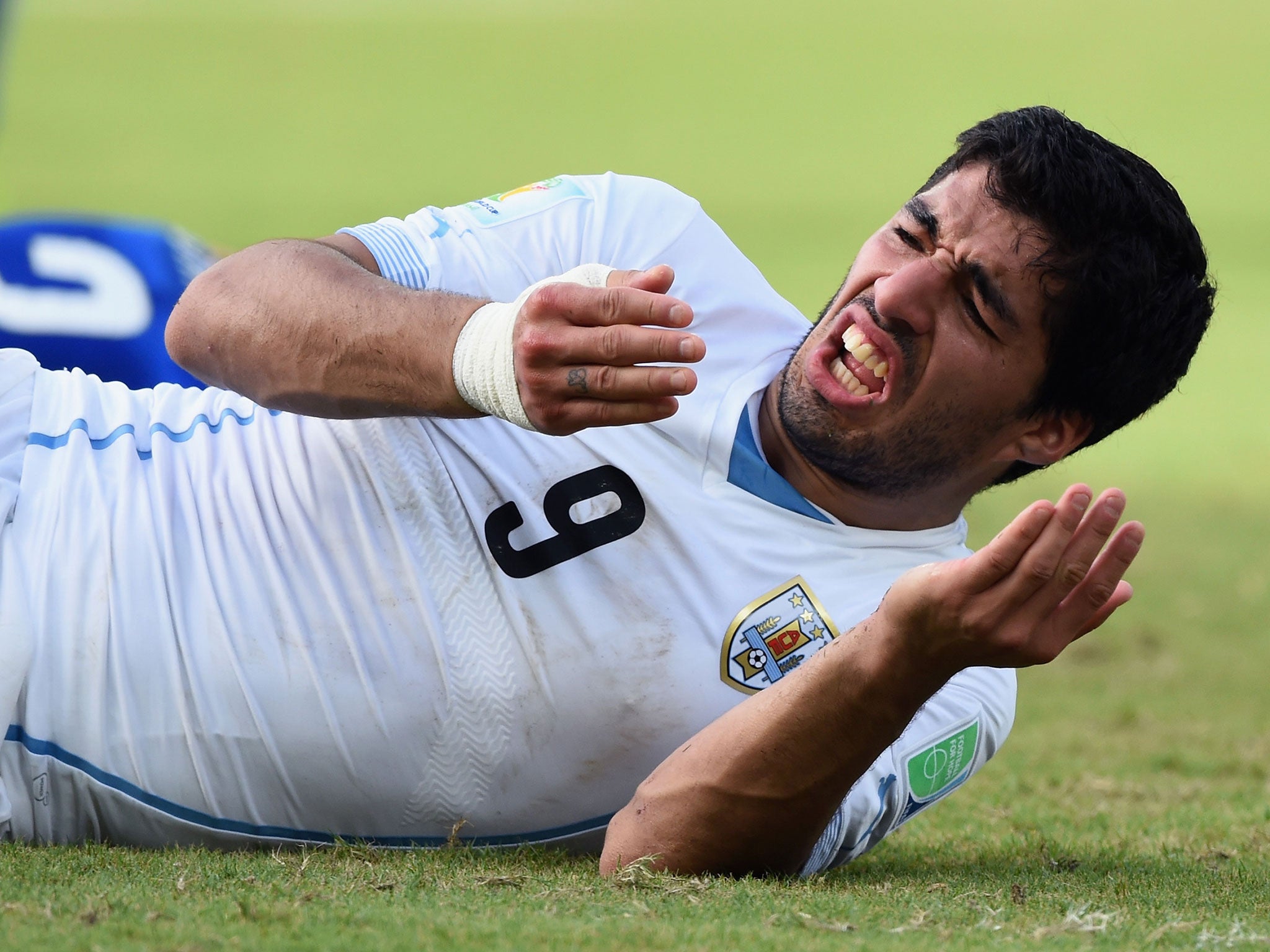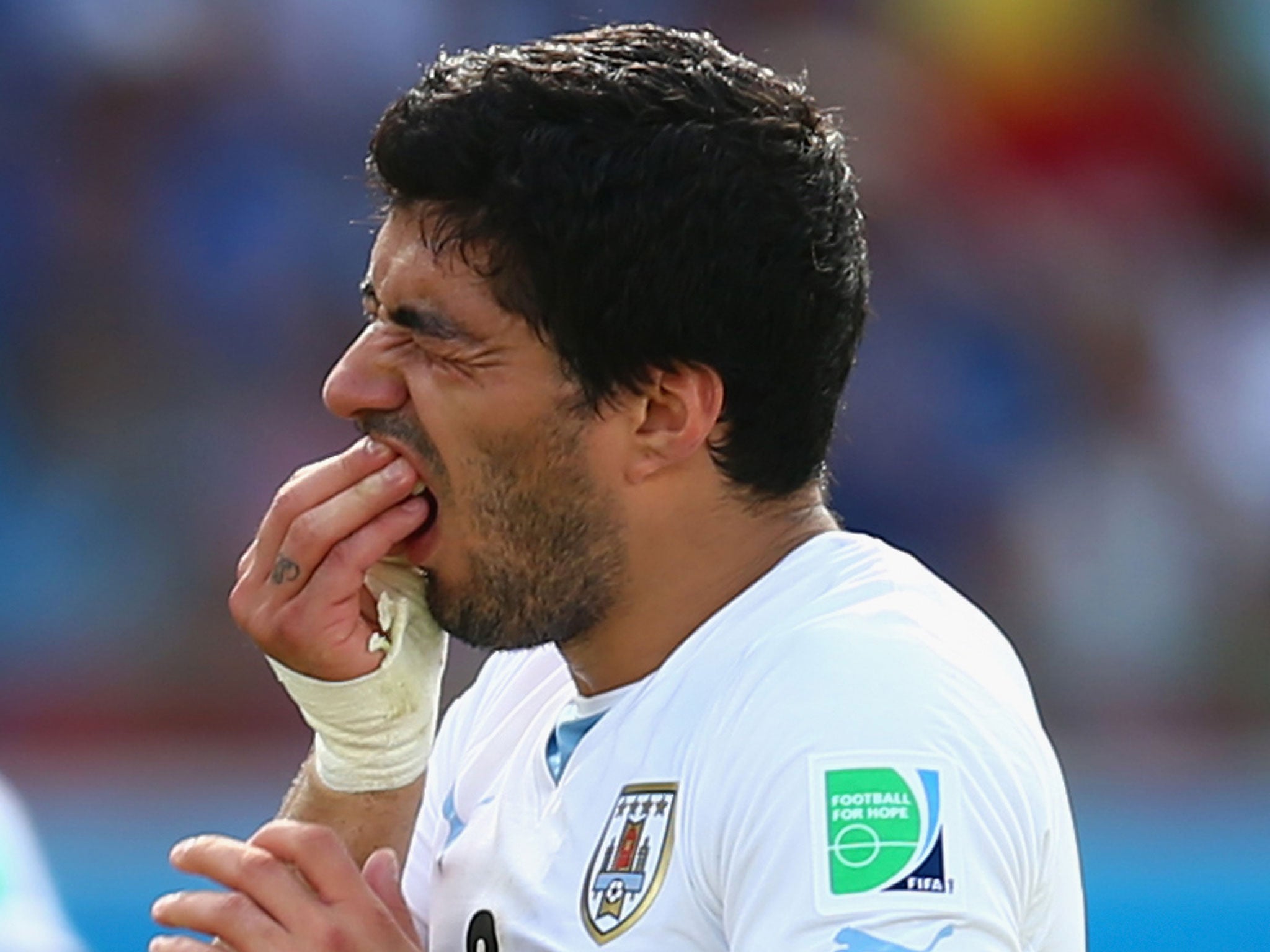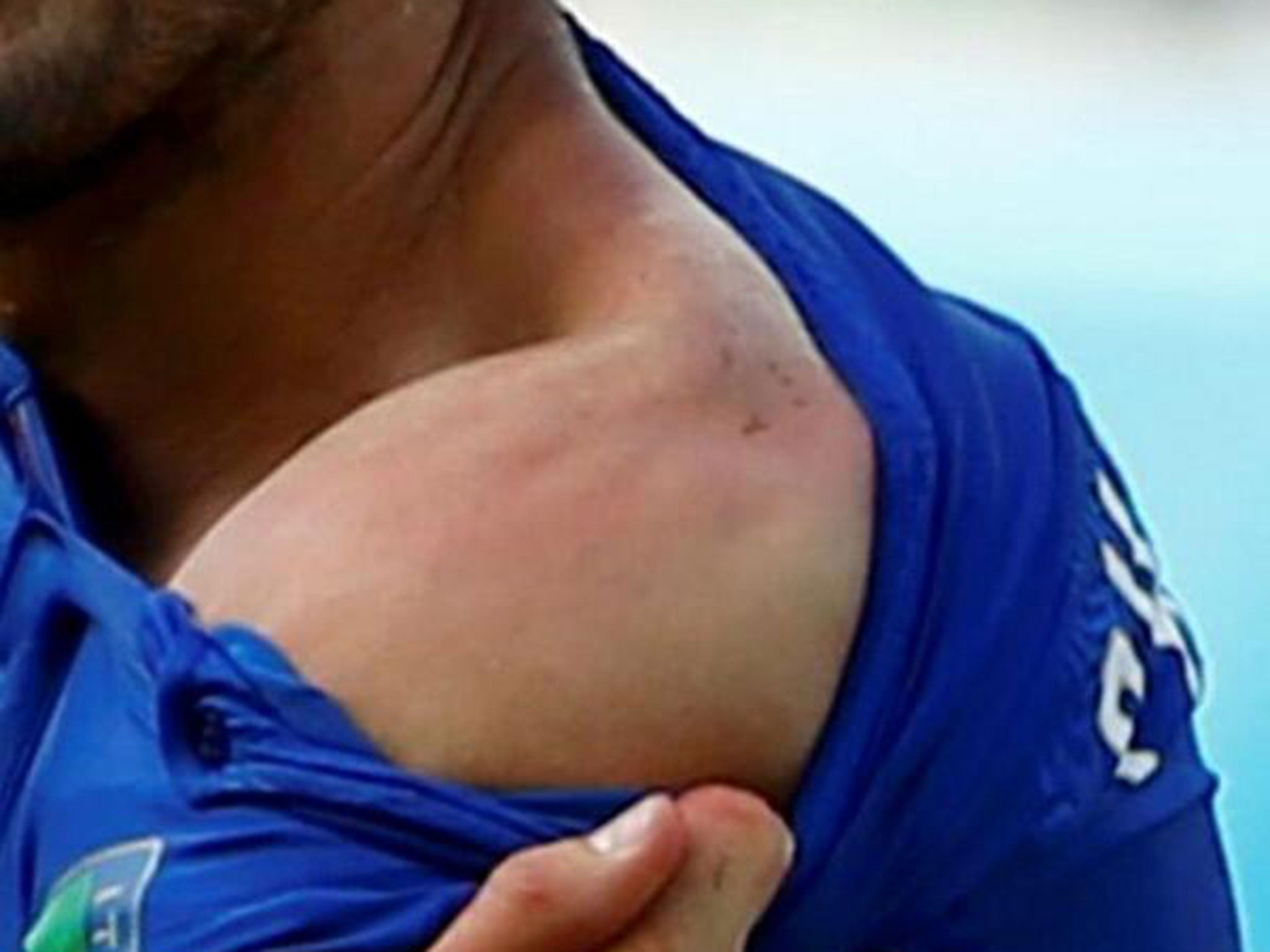Luis Suarez bite: 'Suarez can learn, but it will not be easy', say senior psychologists after Uruguay striker is accused of biting Italy's Giorgio Chiellini
Suarez and Chiellini clashed during the final World Cup Group D encounter where the centre-back appeared to show teeth marks on his shoulder

Your support helps us to tell the story
From reproductive rights to climate change to Big Tech, The Independent is on the ground when the story is developing. Whether it's investigating the financials of Elon Musk's pro-Trump PAC or producing our latest documentary, 'The A Word', which shines a light on the American women fighting for reproductive rights, we know how important it is to parse out the facts from the messaging.
At such a critical moment in US history, we need reporters on the ground. Your donation allows us to keep sending journalists to speak to both sides of the story.
The Independent is trusted by Americans across the entire political spectrum. And unlike many other quality news outlets, we choose not to lock Americans out of our reporting and analysis with paywalls. We believe quality journalism should be available to everyone, paid for by those who can afford it.
Your support makes all the difference.Luis Suarez can learn to stop biting opponents but it will not be a quick or easy process, senior psychologists have said following the Uruguay striker's bite on the shoulder of Italy defender Giorgio Chiellini at the World Cup.
Suarez, twice previously banned for biting, is under investigation by FIFA for the incident late in the Group D clash on Tuesday and faces another lengthy suspension.
"From what I've seen in the video footage, Suarez took out his frustration and anger on Chiellini from blocking his access to the ball by reactively and impulsively biting him," Eva Kimonis, senior lecturer at the School of Psychology at the University of New South Wales in Australia, told Reuters via email.
"It's likely that he did not give thought to the serious repercussions of his actions given his violent history in the sport until it was too late, at which point he acted injured."
Among the research areas covered by Dr. Kimonis at the Australian university are aggressive and anti-social behavior and violent conduct.
"While common in early childhood, biting in adults is rare," Kimonis said. "It may be one manifestation of a broader, long-term pattern of misbehaviour that involves other forms of aggression - hitting, bullying, shouting, physical fighting - and is common to people with particularly hot tempers and impulsiveness."
Liverpool forward Suarez was served a 10-game suspension last year after biting Chelsea's Branislav Ivanovic in a Premier League match and spent seven games on the sidelines in 2010 for biting PSV Eindhoven's Otman Bakkal while playing for Ajax Amsterdam.
Video: Luis Suarez bites Giorgio Chiellini
Kimonis believes that Suarez may have been acting out of frustration when he bit Chiellini, or simply trying to gain the upper hand as Uruguay battled for a place in the knockout stages of the tournament.
"Aggressive behaviour like biting and hitting may be reactive in response to a real or perceived threat, or proactive to achieve some sort of instrumental gain, such as dominance or possessions," she said.
"In the case of reactively aggressive acts, the action is typically preceded by some sort of stressor that leads to anger and frustration, causing the person to lash out against the source of that threat.
"For people with chronic aggression, cognitive behavioural therapies may be effective at helping the person to better identify when they are in an angry or frustrated state."

Clinical psychologist Dr. Corinne Reid from the School of Psychology and Exercise Science at Murdoch University in Western Australia, told Reuters there may be a team dimension to the striker's actions that would need examination.
"It would be important to check whether he thinks his behaviour is justified or acceptable," Reid said in an email.
"If he does, and if this view is endorsed, actively or passively, by his team mates or coaches then change is unlikely."
Uruguay captain Diego Lugano stuck up for Suarez in the post-game furore, slamming Chiellini for "crying and appealing against a rival". He also said: "As a man, he disappointed me totally."
Coach Oscar Tabarez also rowed in behind his errant striker, saying: "It seems there is this animosity toward him and he is being persecuted by past events."
Professor Reid said that while she agreed stress would be a factor in the Suarez case, it was by no means the only factor.
"All elite athletes have to deal with exceptional stress. All have a stress signature, not all - in fact very, very few - bite.
"It is also interesting to note how athletes react after a violent incident or stress reaction. Some athletes are instantly remorseful, embarrassed and ashamed of what they have done.
"They have a sense that it was wrong, and a sign of weakness, or a flaw in their performance. Others do not see it as a problem, minimise it or attempt to justify their actions."

In a post-match TV interview, Suarez admitted there was contact but described the incident as "one of those things that happens in football."
Reid, who also works with Australia's men's hockey team as senior clinical psychologist, said the 27-year-old could change the way he reacts in such situations but it would not be easy.
"If there is an acceptance that this is a problem then individual work on identifying and modifying his stress signature would be helpful," Reid added.
"This is not quick. Changing habits of a lifetime takes commitment, effort and persistence over months but the impact can be powerful."
Suarez and the Uruguayan FA have until 5 PM (2000 GMT) Brasilia time on Wednesday to respond.
Reuters
Join our commenting forum
Join thought-provoking conversations, follow other Independent readers and see their replies
Comments